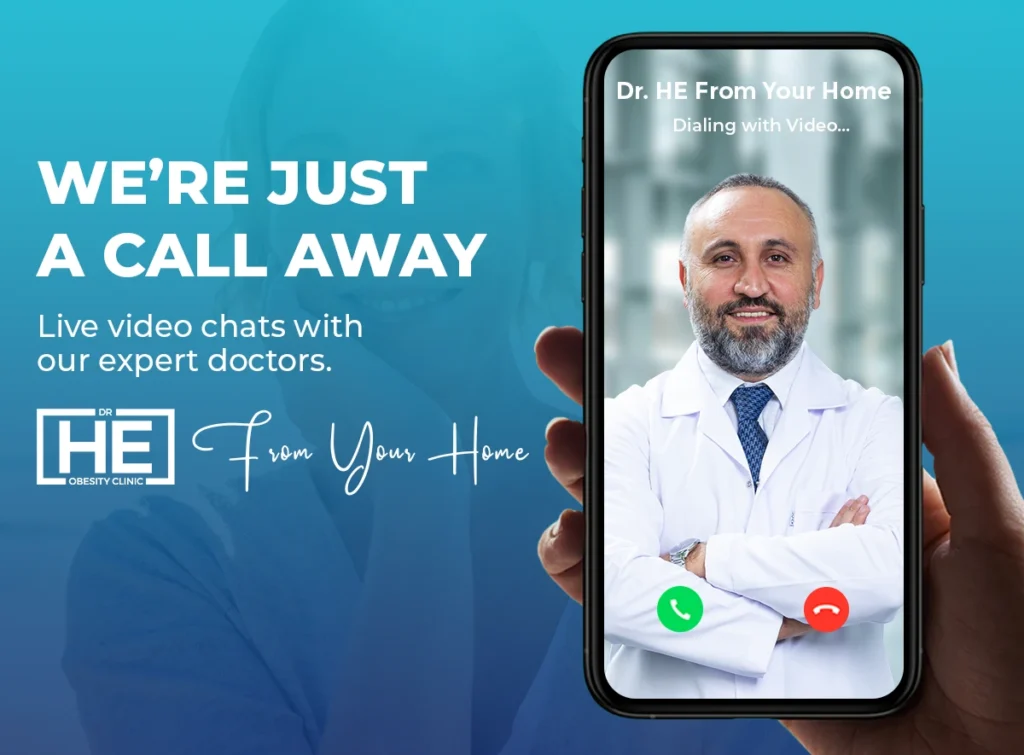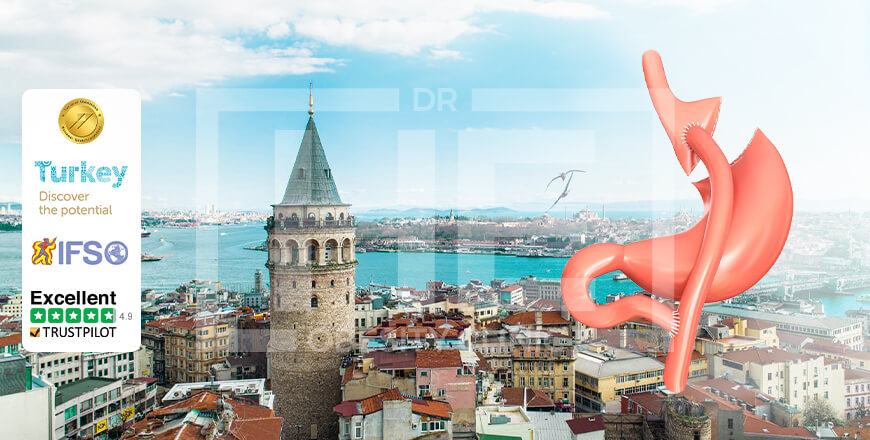
Gastric bypass surgery in Turkey generally costs between $4,500 and $6,500. This price range can vary based on factors such as the clinic’s reputation, the surgeon’s expertise, and the specifics of the surgical package, which may include pre-operative assessments, hospital stays, and post-operative care.
🇹🇷 Gastric Bypass Surgery in Turkey
Gastric Bypass Surgery in Turkey is a popular bariatric procedure designed for significant weight loss by altering the digestive system. The surgery involves creating a small pouch from the stomach and connecting it directly to the small intestine, which helps limit food intake and nutrient absorption.
📸 Discover Incredible Transformations with Our Gastric Bypass Surgery in Turkey!
Explore our Before & After gallery to see real patient results and witness how this life-changing procedure has helped individuals achieve their weight loss goals. Each story showcases the remarkable journey from obesity to a healthier, more confident life. Let these success stories inspire your own transformation!




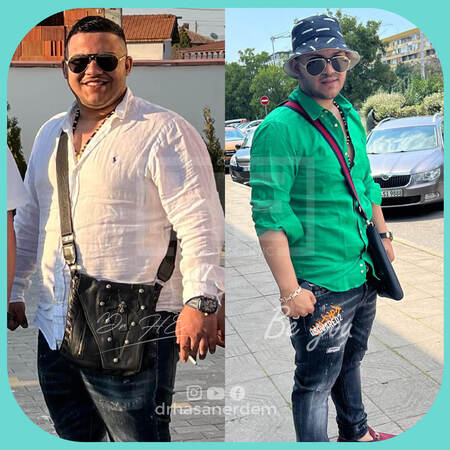
✅ What are the Advantages of Having Gastric Bypass Surgery in Turkey?
Cost-Effective: The surgery is significantly cheaper compared to Western countries, making it accessible to more patients.
High-Quality Care: Turkey offers accredited clinics with experienced bariatric surgeons who follow international standards.
Comprehensive Packages: Many clinics provide all-inclusive packages that cover everything from pre-operative assessments to post-operative care.
Experienced Surgeons: Surgeons in Turkey are highly trained and skilled in the latest techniques.
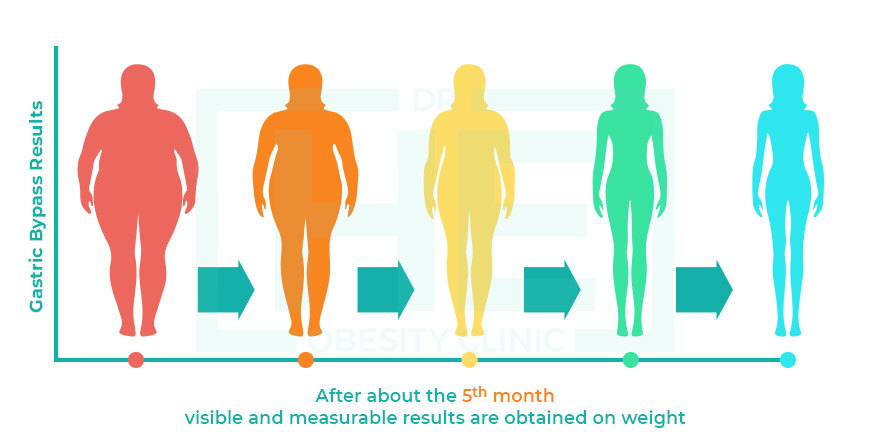
📅 Plan Your Trip to Turkey for a Gastric Bypass
Research & Consultation: Choose a reputable clinic and schedule an online consultation.
Select a Package: Opt for an all-inclusive package (surgery, accommodation, transfers, post-op care).
Book Flights: Confirm your surgery date and book your flights to Turkey.
Arrival: The clinic will usually provide airport transfers and guide you through pre-op tests.
Surgery & Recovery: Follow the clinic’s post-op care plan. Stay for recommended recovery time.
Follow-Up: Stay in touch with the clinic for follow-up and remote consultations.

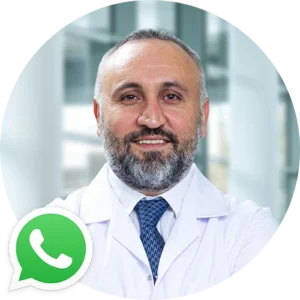
To Meet Online with Prof. Dr. Hasan Erdem 24/7 Make an Appointment
🌟 Reasons for the Popularity of Gastric Bypass in Turkey 🌟
The popularity of Gastric Bypass surgery in Turkey is due to several factors: experienced surgeons, advanced medical facilities, affordable treatment costs, and comprehensive care packages. Additionally, Turkey’s strict adherence to international healthcare standards and its reputation for medical tourism make it a top choice for patients worldwide seeking weight loss solutions.
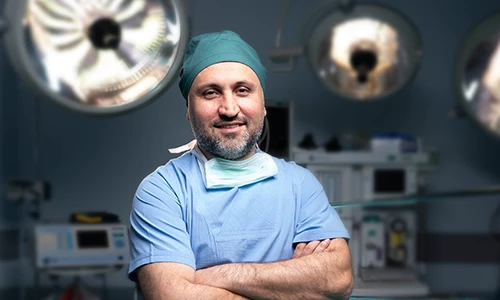
Dr. Hasan Erdem is an internationally renowned bariatric surgeon in Istanbul, Turkey. With over 15 years of experience, he is a specialist in weight loss procedures such as gastric sleeve, gastric bypass and gastric banding. Defined for his expertise and outstanding results, Dr. Erdem guarantees its patients’ profits and well-being by offering personalized care and comprehensive follow-up.
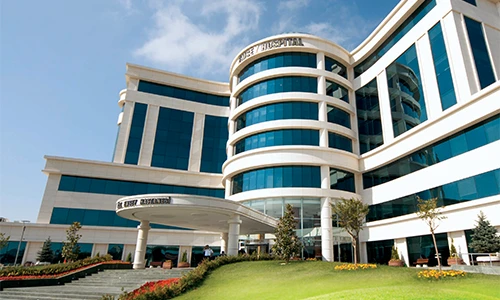
Safe hospital treatment ensures that all medical procedures, including surgeries and post-operative care, are performed in a controlled and sterile environment. Hospitals follow strict safety protocols, using advanced technology and highly trained staff to minimize risks and ensure patient well-being. This approach guarantees a secure and professional setting, providing peace of mind for patients undergoing treatment.
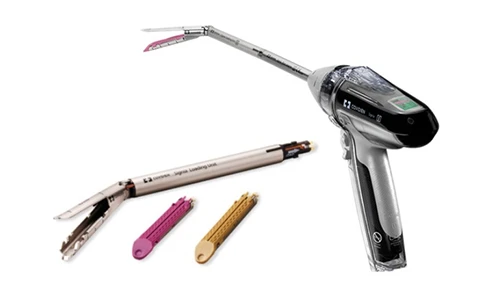
State-of-the-art medical equipment refers to the most advanced and innovative tools and technology used in healthcare today. These cutting-edge devices ensure precise diagnostics, safer procedures, and more effective treatments. By utilizing the latest technology, hospitals and clinics can provide higher quality care, reduce recovery times, and improve overall patient outcomes.
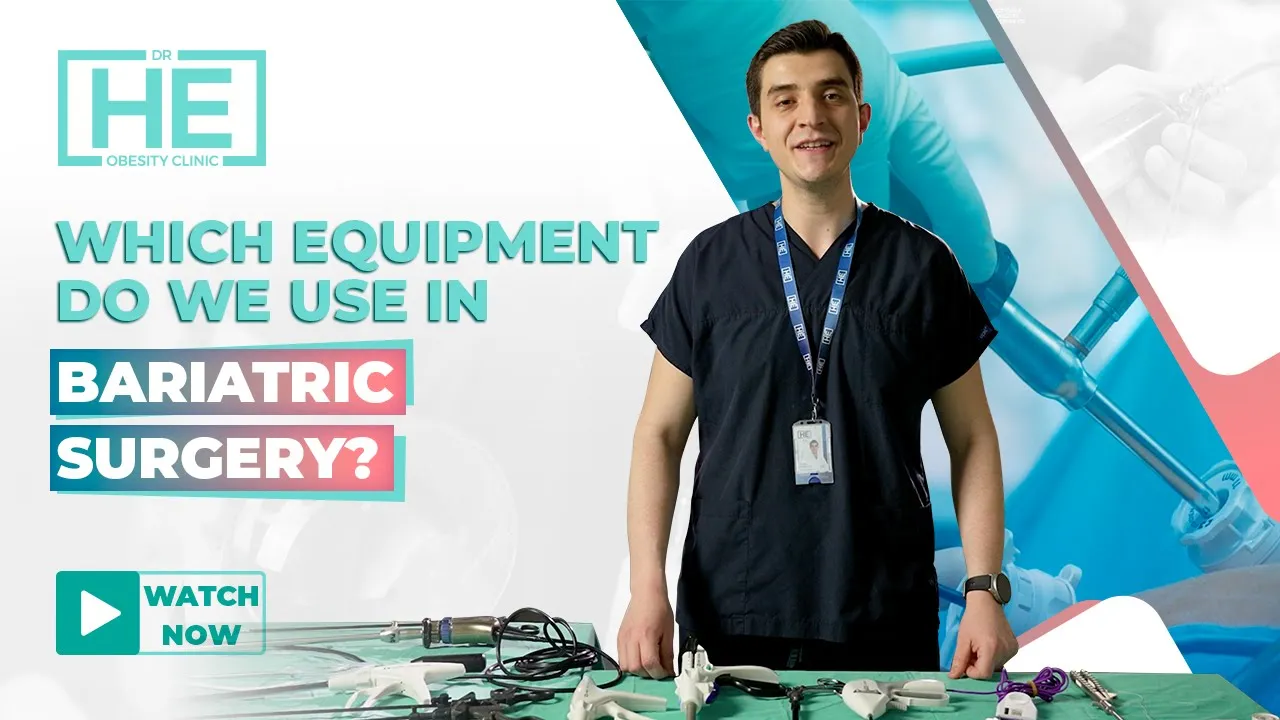

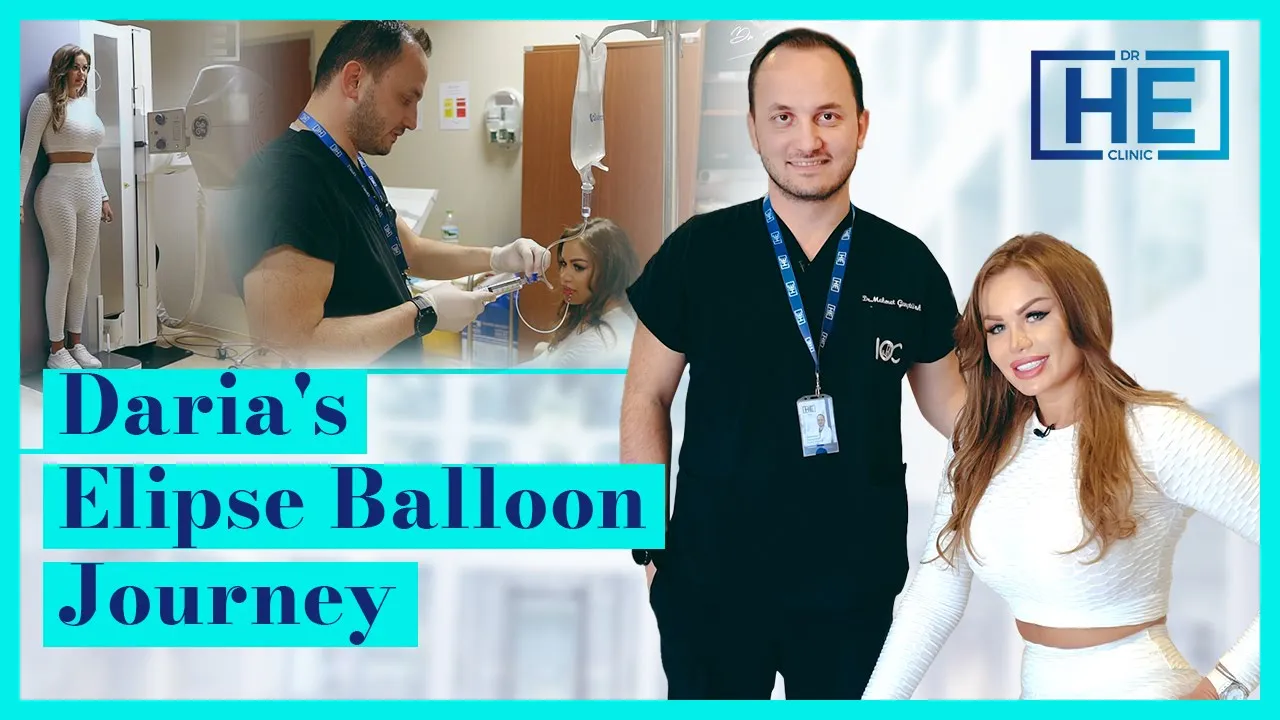
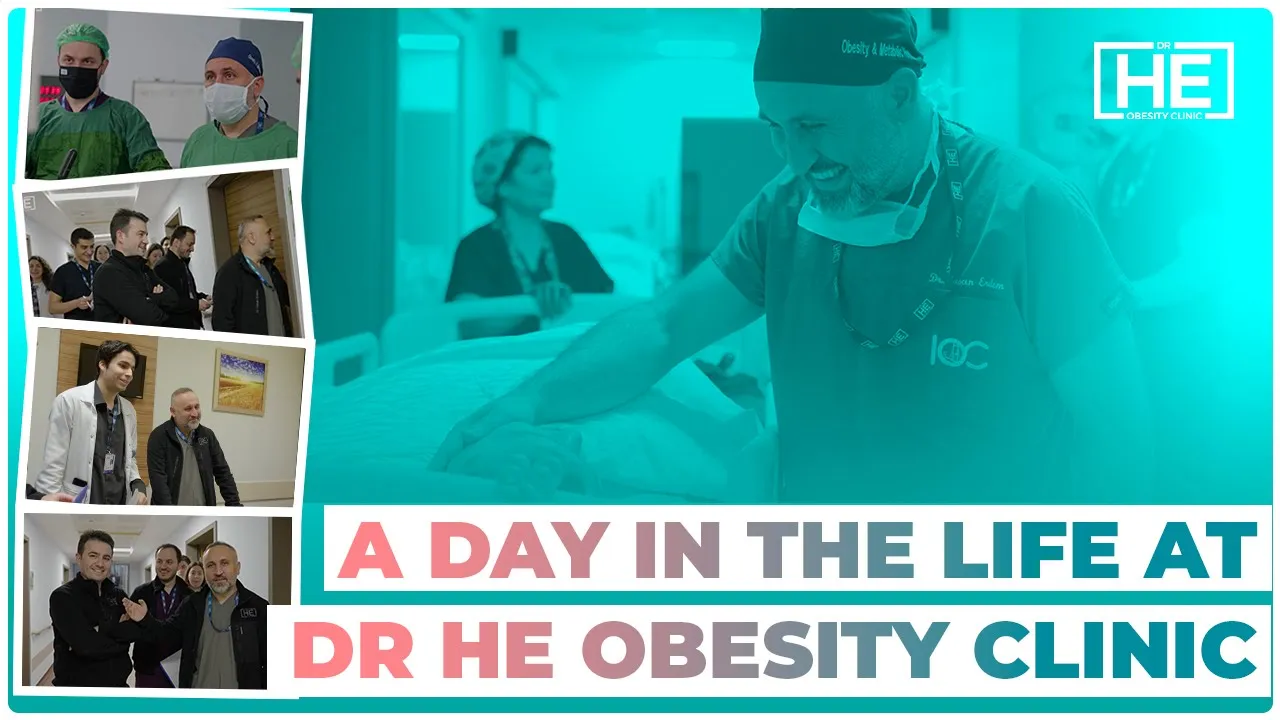
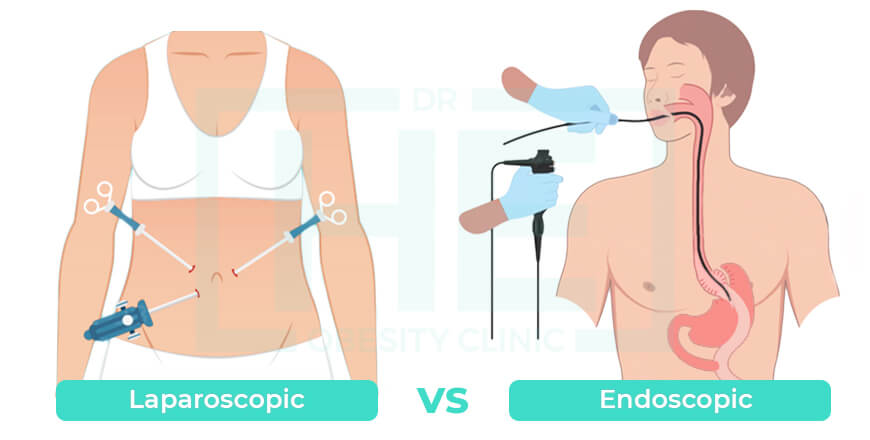
How is Gastric Bypass Surgery Performed?
Gastric bypass surgery is a weight loss procedure that involves creating a small pouch from the upper stomach and connecting it directly to the small intestine. This process limits food intake and reduces calorie absorption. The surgery is performed under general anesthesia, and the approach can be either open surgery or minimally invasive laparoscopic surgery, which offers quicker recovery times.
Recovery After Gastric Bypass Surgery
Hospital Stay: Patients typically remain in the hospital for 2 to 3 days for monitoring and initial recovery, focusing on pain management and dietary adjustments.
Diet Progression: Recovery starts with a clear liquid diet, gradually moving to soft foods and then to solid foods as tolerated. Emphasis is placed on high-protein, low-sugar options to support healing and weight loss.

Hydration: Maintaining proper hydration is crucial. Patients are encouraged to drink plenty of fluids throughout the recovery period.
Early Recovery (2 to 4 weeks): During this stage, patients should prioritize nutrition and rest. It’s important to follow dietary guidelines strictly.
Nutritional Support: After surgery, patients may need to take vitamins and supplements to prevent nutritional deficiencies, as the body absorbs fewer nutrients post-surgery.
Lifestyle Changes: Long-term success depends on adopting healthy eating habits, regular physical activity, and ongoing medical support.
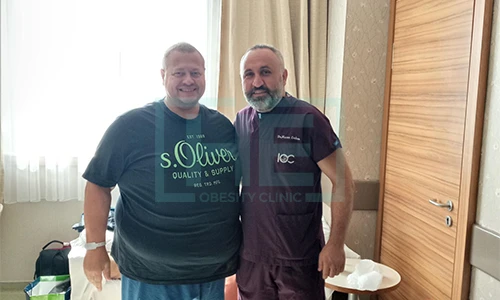
Who is Eligible for Gastric Bypass in Turkey?
Eligibility for gastric bypass surgery in Turkey typically involves having a Body Mass Index (BMI) of 35 or higher, although those with a BMI of 30 may qualify if they have obesity-related health issues like diabetes or hypertension. Candidates usually have a history of unsuccessful weight loss attempts through other methods and should be between 18 and 65 years old, though exceptions can be made based on individual health situations.

💸 Gastric Bypass Surgery Cost in Turkey 2025
In 2025, the cost of gastric bypass surgery in Turkey typically ranges from $4,500 to $6,500. This price can vary based on factors such as the specific clinic, the surgeon’s experience, and the inclusiveness of the surgical package, which often covers pre-operative assessments, the surgery itself, hospital stays, and post-operative care.
🌍 Gastric Bypass Surgery Prices by Country
 Turkey Turkey | $4,500 – $6,500 |
 Mexico Mexico | $16,500 – $25,000 |
 USA USA | $16,000 – $24,000 |
 UK UK | £14,000 – £18,000 |
 Germany Germany | €15,000 – €20,000 |
 Spain Spain | €15,000 – €19,000 |
Why does Gastric Bypass Surgery Cost in Turkey Cheap?
The lower cost of gastric bypass surgery in Turkey is influenced by several factors. Firstly, the overall cost of living in Turkey is significantly lower than in many Western countries, which helps reduce operational expenses for medical facilities. Additionally, favorable currency exchange rates allow international patients to access these procedures at more affordable prices, leading to considerable savings. Turkey has also become a competitive hub for medical tourism, fostering competition among clinics that helps keep prices down while maintaining high standards of care.
Does Health Insurance Pay for the Gastric Bypass Surgery?
Health insurance coverage for gastric bypass surgery can vary significantly based on individual policies and circumstances. Generally, many health insurance plans do cover bariatric surgery, including gastric bypass, if the patient meets specific medical criteria. Most insurers typically require patients to have a Body Mass Index (BMI) of 35 or higher, or a BMI of 30 with obesity-related health conditions such as diabetes or hypertension.
All Inclusive Packages
All Inclusive Packages
All Inclusive Packages

"I came from Germany . I had my Surgery with Dr. Hassan Erdem. I am very satisfied. He was very nice and friendly. He did good Job. The Hospital was very good and the people are nice. They always checked me up. I almost lost 5 kilos in 6 days."

“Had my operation in may 20th it’s now July 17th I’ve lost 20 kilos best thing I ever done. Feel healthier and happier thanks to all the staff an doctors for their help it was much appreciated will be back to visit soon. Thank you so much for everything."

“The best decision I made in my life was having this operation. I had my surgery 5th of July 2018 and went into it weighing 118 kilos and it’s been just over a year I’m 74 kilos. Worth every single penny I spent and the doctors are so motivating and supporting"

“Thank you for everything doctor Hasan. I had gastric sleeve 7.04.2019. I lost 43 kilos. After the surgery, i felt a little pain but that was worthy. Dr Hasan and his team gave me a new life. Now, As if I never lived before. Thank Dr. HE and his team."

"I was searching for this operation for years. I found Turkey and Turkey was a good option. Before the surgery, I was afraid. But Dr. Hasan Erdem and his team helped me a lot. Now, I lost 13 kilos in one month.. I am getting better everyday."

"I was 120kg and now 75kg, it's Dr. Hasan and his team's miracle. From start to end everything is perfect. They always write to me and ask about my health per week. I made a good decision. Of course, I was worried and I was afraid but their energies were wonderful."
Is it Safe To Have A Gastric Bypass Surgery in Turkey?
Gastric bypass surgery in Turkey can be safe, but it is essential for patients to conduct thorough research before proceeding. While many reputable clinics offer high-quality services and experienced surgeons, recent investigations have reported concerning outcomes, including fatalities among patients who traveled for weight loss surgery. Factors such as the clinic’s accreditation, the qualifications of the surgical team, and the standard of post-operative care are crucial for ensuring safety.
How to Reach Turkey?
Reaching Istanbul is easy with two major international airports: Istanbul Airport (IST) and Sabiha Gökçen Airport (SAW). Both airports offer direct flights from cities worldwide, making Istanbul highly accessible. Istanbul Airport (IST) serves as the main hub, while Sabiha Gökçen (SAW) is located on the Asian side of the city, providing another convenient option for travelers. After landing, you can reach the city center via taxis, airport shuttles, or public transport from both airports.
Do I Need to Stay in Turkey After Gastric Bypass Surgery?
After gastric bypass surgery in Turkey, patients typically need to stay for a short period to ensure proper recovery and monitoring. The standard protocol involves remaining in the hospital for about 2 to 3 days for initial recovery. Following this, it is common for patients to stay in Turkey for an additional 5 to 10 days to attend follow-up appointments and address any potential complications.
Which is the Best Doctor for Gastric Bypass in Turkey?
One of the best doctors for Gastric Bypass Surgery in Turkey is Dr. Hasan Erdem, a highly experienced bariatric surgeon with a strong reputation for successful weight loss surgeries. With years of expertise in performing gastric sleeve and other bariatric procedures, Dr. Erdem is known for his personalized care, attention to detail, and commitment to patient safety. He practices at the Dr. HE Clinic, which offers state-of-the-art facilities and comprehensive pre- and post-operative care, making it a top choice for international patients seeking weight loss solutions in Turkey.

Frequently Asked Questions About Gastric Bypass Surgery
Gastric bypass surgery typically takes about 2 to 4 hours. The exact duration can vary based on factors such as the surgical technique used and individual patient conditions.
Gastric bypass surgery can involve some pain, which is typically managed with medication. Patients may experience discomfort and soreness around the surgical site, as well as abdominal cramping as the body adjusts post-surgery.
Yes, there will be scars after gastric bypass surgery, but the visibility and size depend on the surgical technique used. In traditional open surgery, a larger incision is made, resulting in a more prominent scar. However, many surgeons use laparoscopic techniques, which involve smaller incisions, leading to smaller, less noticeable scars.
Gastric bypass surgery carries several potential risks and complications. Some of the most common risks include:
- Infection: There is a risk of infection at the incision site or within the abdominal cavity.
- Bleeding: Internal bleeding may occur, which could require additional treatment.
- Blood Clots: Patients might develop blood clots in the legs (deep vein thrombosis) or lungs (pulmonary embolism).
- Nutritional Deficiencies: Reduced nutrient absorption can lead to deficiencies in essential vitamins and minerals, requiring lifelong supplementation.
Yes, after gastric bypass surgery, you need to follow a special diet to ensure proper healing and long-term success. The diet typically progresses through several stages:
- Clear Liquids: Initially, you will start with clear liquids for about a week post-surgery to allow your stomach to heal.
- Full Liquids: This phase includes smooth liquids like protein shakes and broth for another week or so.
- Soft Foods: After the initial weeks, you can gradually introduce soft foods, such as pureed vegetables and soft fruits.




 Türkçe
Türkçe  Deutsch
Deutsch  Français
Français  Español
Español  Русский
Русский  Nederlands
Nederlands  български
български  Português
Português  Română
Română  العربية
العربية




